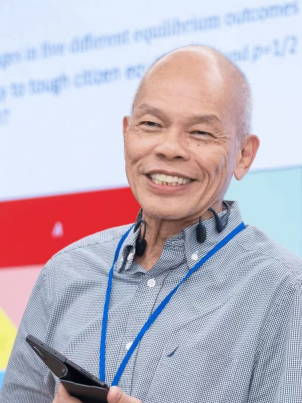讲座题目:Goal Intelligence: From Brain Plasticity to Experiential Consciousness to Decision Quality
讲座时间:2025年5月18日(周日)08:00-09:30
讲座地点:永利官网沙河校区沙河二教112教室
主讲嘉宾:Professor Chew Soo Hong,Southwestern University of Finance and Economics
嘉宾简介:
Chew Soo Hong,西南财经大学智慧经济科学研究中心主任,教授。现为世界计量经济学会会士(Econometric Society, Fellow)和经济学理论促进学会会士(SAET, Fellow),是行为和实验学的国际领军人物。他于1981年毕业于不列颠哥伦比亚大学。在Econometrica, Journal of Political Economy, Review of Economic Studies, Journal of European Economic Association, Journal of Economic Theory, Management Science, International Economic Review等经济学国际顶尖期刊发表诸多论文。他同时也在有关生物学的重要学刊发表了许多论文,例如Proceedings of the National Academy of Sciences, Neuron, Proceedings of the Royal Society Series B, Behavioral and Brain Sciences以及Neuroimage。

讲座摘要:In The Principles of Psychology (1890), William James describes consciousness as a "stream"——a continuous, dynamic process that facilitates the perception of the environment. In "Why Consciousness?", Robert Aumann (2024) argues that consciousness evolved to enable the experience of incentives underpinning all economic decision making, while leaving open the question of "How". Our answer to this question, built on brain plasticity at the synaptic level, delivers a measure of experiential consciousness in terms of the brain's information capacity (BlC). The resulting relation between BlC and the evolution of cephalized animals, from C. Elegans (302 neurons; 7000 synapses) to humans (86 billion neurons, hundreds of trillions of synapses), motivates our definition of intelligence in terms of the organism's ability to make good decisions to attain goals, i.e., survival of the smartest. Observe that goal intelligence (Gl) differentiates biological intelligence (incentivized to attain goals through decision making) from Al (which fulfills goals algorithmically). Gl is naturally applicable to research in economics, business, and social sciences in general, where decision quality has a pivotal role.
欢迎广大师生积极参加!